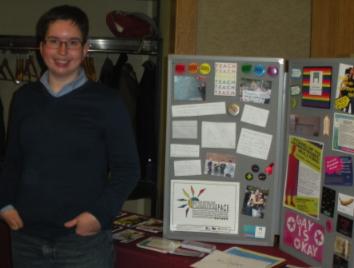Calling homophobic violence “bullying” distorts the reality of what is actually happening in Canadian high schools, say activists.
Several speakers on a Nov 17 Toronto Planned Parenthood panel about homophobia in high schools say they think the word bullying doesn’t address the real problem of violence.
“I would like us to push beyond the language of bullying,” says Lali Mohamed of Deviant Productions, an alternative social media collective in Toronto. “We need to discuss the violence that’s going on . . . impacting the lives of LGBT and gender-non-conforming [students].”
Mohamed says he wants people to start talking about homophobia as an “act of violence.”
Anna Penner, the program coordinator with the Planned Parenthood program Teens Educating and Confronting Homophobia (TEACH), says: “Bullying gets used as a code word . . . a catch-all to describe something that’s actually very specific.
“People are really afraid to say homophobia; people are really afraid to say sexual orientation, gender identity, so they say bullying because that’s something safe,” says Penner. “But as soon as we’re talking about LGBTQ kids in the school, or gender-non-conforming kids in school, then it’s another issue.”
It’s a language choice that’s not working for teens in schools, says D Ryan Dyck, of Egale Canada.
According to a 2011 Egale Canada national climate survey on heterosexism in schools, 64 percent of queer students and 61 percent of students with queer parents reported that they feel unsafe at school. More than one in five queer students reported being physically harassed or assaulted due to their sexual orientation.
Dyck says a major factor in creating safe schools is moving beyond language like “bullying” to talk about queer identities.
Students feel safer in schools with “an explicit human rights and equity policy that names sexual orientation and gender identity with measures to address those issues — to address homophobia, transphobia, biphobia,” he says. “Generic policies did not make a difference.”
The report notes that 58 percent of students in schools with anti-homophobia policies believe their school communities are supportive of queer people, compared to 25 percent who are in schools that do not have such policies.
Dyck also points to the importance of gay-straight alliances (GSAs) in creating classrooms where kids felt comfortable.
“Students . . . told us over and over again,” he says. “They felt more respected, they felt more free to be open about who they were, to seek support when they needed it, and the final thing is to actually report when something happened, to talk to their teachers or whomever when they had been bullied.”
Egale’s research has found that 82 percent of queer students in schools with GSAs are open with some or all of their peers about their sexual orientation or gender identity, compared to 68 percent in schools without.
Michael Erickson, a high school teacher at Harbord Collegiate, says, “The word bullying is almost tacky with teens.
“On the one hand, it’s almost too soft a word to describe what’s happening, and on the other hand, it’s almost too intense,” he says. “Youth, in my experience, see bullying as an action . . . whereas for me, a lot of the homophobic, transphobic stuff in schools is hard to pinpoint.”


 Why you can trust Xtra
Why you can trust Xtra


